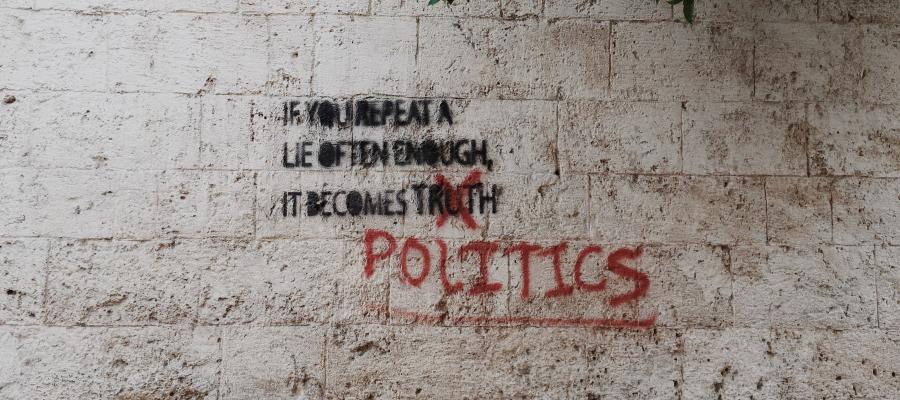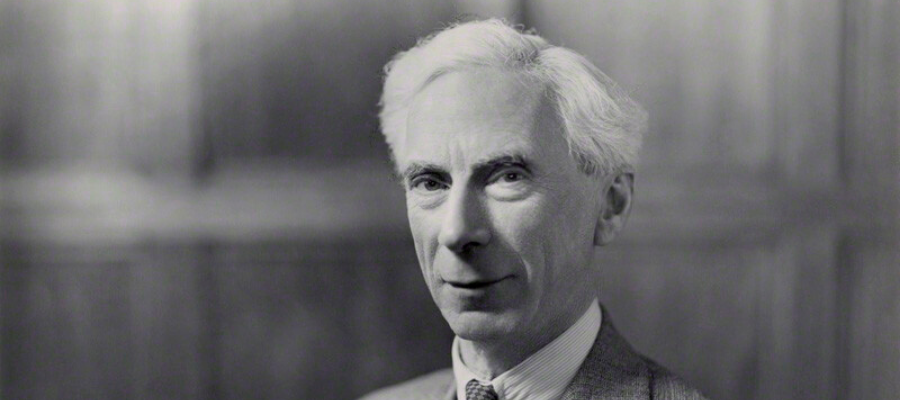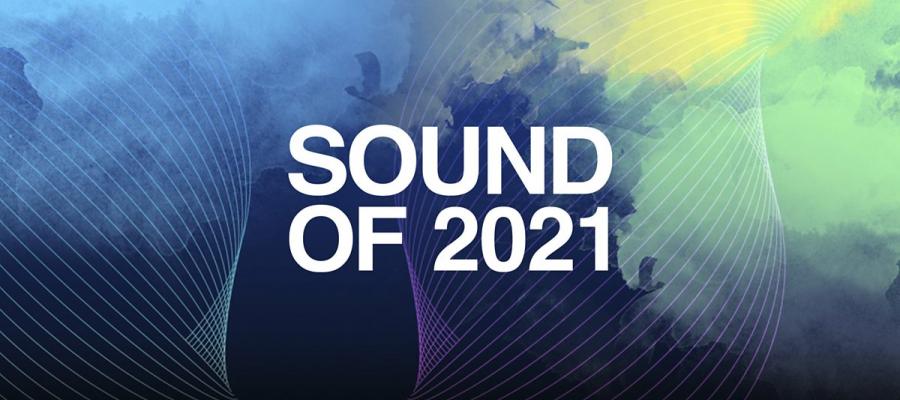Is Being Human More Like Being a Weed than Like Being Water?
21
Apr 2014
You are human, and so am I. We can both agree on that. But what does it mean to say of someone that they are human? Many people believe that science has already answered this question. They think that it’s been scientifically proven that being human is the same as being a member of the species Homo sapiens. It’s true that this is what some scientists claim, but others tell a different story. Have a look at the literature on human genetics, evolution, and paleoanthropology, and you’ll find that some scientists equate being human with being a member of genus ...
Read moreThe State of Public Philosophy
04
Aug 2011
Philosophy Talk is devoted to public philosophy. But we mean two different things by that. Our first aim is to encourage the public - our listeners and participants in our blog - to do philosophy, to engage in the ongoing activity. That’s because we think it's something a lot of people enjoy, and that it leads to better discussions and decisions. The second thing we try to do is to present what influential philosophers of the past and present, are thinking about. The latter aim is definitely secondary. We're mostly interested in what philosophers...
Read moreBuddhism, Science, and the West
08
Dec 2017
Why do many of us assume that Buddhism and science are polar opposites—that Buddhist teachings are so paradoxical and mysterious they are not even meant to be understood? Is it possible instead that the teachings of Buddhism actually far predate certain scientific conclusions the West is just now discovering? What can be said about the scientific verifiability of Buddhism? This article by Robert Wright on The New York Times philosophy blog, The Stone, takes a stab at vindicating Buddhism in this way: https://www.nytimes.com/2017/11/06/opinion/buddhism-western-...
Read moreAre we a white supremacist nation?
21
Feb 2016
In a recent episode of Philosophy Talk, Ken, John, and their guest, Naomi Zack, considered Cornell West’s criticism of Obama the crux of which is that Obama is afraid to acknowledge that the United States is a white supremacist society, which is the root of all other race-related problems in the United States. Ken, John and Naomi all seemed to agree that West’s criticism was off-mark, citing the important difference between “formal” and “material” equality (or rights). The idea seemed to be that there is an important difference between a society that allows legal discrimination based on...
Read moreThe End of Privacy
06
Apr 2018
The End of Privacy: Or Why Your Home is Not Your Castle And Your Data is not Your OwnOnce upon a time, your home was considered your castle, a sphere of absolute privacy, where you could reliably escape prying eyes. No one, except perhaps the constable, dared even enter one’s home without permission. And with the eventual rise, at least in the more democratic corners of the globe, of legal privacy rights, even the constable was required to be solicitous of the sanctity of the home as a zone of privacy. Of course, people have always invited others into...
Read moreDemocracy in Crisis
19
Mar 2015
This week we're thinking about Democracy in Crisis. Now if we're talking about American Democracy, then our title is pretty optimistic, since it presupposes there is an American democracy to be in crisis. If you told me the passenger pigeon was in crisis, that would also be optimistic, since the passenger pigeon went extinct a century or so ago. Why isn't it crazy to think that American democracy has gone extinct? Consider the 2014 election, where the Democrats won a considerable majority of the votes for the House of Representatives, but the Republicans...
Read moreSay it Enough, They’ll Believe It
20
Nov 2020
If you repeat something, people are more likely to believe it. This isn’t speculation, and it’s not just some old saying. It’s a real phenomenon well established and extensively studied in cognitive science. It’s known as the illusory truth effect: hearing or reading a claim, especially repeatedly, makes you more likely to think it’s true. It was first documented in a 1977 publication by Lynn Hasher, David Goldstein, and Thomas Toppino. Since that groundbreaking work, a whole host of further studies have replicated the effect. The effect of repetition on apparent truth has been found...
Read moreSummer Reading Uncut
25
Jun 2023
Your friendly neighborhood Senior Prodcuer here, once again stepping out from behind the mixing board to bring you some bonus content from this week's 17th (!) annual Summer Reading special. Naturally we're most eager for you to listen to the edited broadcast and podcast, but there's always good stuff from each of the conversations we record for these multi-guest episodes that had to be left on the cutting-room floor. This year's program actually begins on TV. Josh and Ken had previously talked about The Good Place on our 2018 episode, The New Golden Age of Television, with one the...
Read moreSome Thoughts on Problematic Arguments
06
Apr 2017
Jeff McMahan and Peter Singer—the latter a famous philosopher and public intellectual, the former famous enough among philosophers, but not so much among the broader public—wrote an article in The New York Times philosophy forum, "The Stone," that has gotten lots people I know and respect pretty upset. Some have reacted to the article with very reasoned and persuasive counter-arguments. Some have thrown in a good measure of anger and disgust at them in addition. You can check out the original article here: Who Is the Victim in the Anna Stubblefield Case?...
Read moreRumor, Suspicion, and Misinformation
28
Jul 2017
I’m sometimes shocked, as a researcher, at where my investigations lead. In the course of revising a new paper on experience and belief in the supernatural (co-authored with Michiel van Elk of University of Amsterdam), I received some comments that referred us to a book on sorcery “beliefs” and the HIV/AIDS epidemic in Zimbabwe. The referred-to book was Alexander Rödlach’s Witches, Westerners, and HIV: AIDS and Cultures of Blame in Africa. It was published in 2006. But its insights about rumor, suspicion, and misinformation are relevant today—not just for understanding Zimbabwe,...
Read moreWhy Should We Give Foreign Aid?
14
Dec 2018
Do we have a duty to help developing nations escape poverty? Or does foreign aid do more harm than good? What is the best way to end global poverty? These are some of the questions we’ll be in asking in this week’s show on foreign aid. Some people dislike the term “foreign aid” because it suggests we’re giving handouts or gifts to developing nations, and it ignores the troubling history of exploitation and colonization by western imperial powers. When we in the west have despoiled the planet, stolen natural resources, exploited poor foreign workers, propped up corrupt regimes, and funded...
Read moreA Tribute to Ken Taylor
04
Dec 2019
I was shocked and saddened to hear of the death of Ken Taylor, a long time friend, colleague, and co-host. Stunned, actually. A great man with a wonderful family, who have my deepest sympathy. I always thought of Ken as my younger brilliant energetic colleague. It wasn't his turn to die. Ken came to Stanford in 1995. It wasn’t easy to lure him away from Rutgers, then and now one of the very top philosophy departments. We had a strong department, but also had California and Stanford as considerations on our side. Ken, his lovely and accomplished wife Claire, and their son Kiyoshi added a lot...
Read moreDescartes
29
Jul 2005
Tuesday we discuss René Descartes, who lived from 1596 until 1650 -- not very long, by my standards. Descartes was a French philosopher, scientist and mathematician who is the father of analytic geometry in mathematics and modern rationalism in philosophy. Pretty good for someone who died at 54.... For almost forty years I have taught Descartes' Meditations in my Introduction to Philosophy Class. The skeptical problem which he poses bring up a host of interesting problems which occupy us for the rest of the course: the external world, the self, God, and the relation between...
Read moreWhy Is Analytic Philosophy Dominant?
03
Mar 2017
How did analytic philosophy come to dominate Anglo-American philosophy departments? If you thought it was just because it is the superior kind of philosophy, well, that might be your bias showing. Some seemingly important developments in the history of thought are determined by rather uninspiring and unglamorous contingencies, like rivalries or personal idiosyncracies. The Daily Nous recently discussed a new essay, "On the emergence of American analytic philosophy" by Joel Katzav and Krist Vaesen, published in the British Journal for the History of...
Read moreWilliam James and the Squirrel Example
07
Aug 2010
Russell Goodman, who was our guest a couple of weeks ago, for our episode on William James sent the following remarks as a follow up to our on-air conversation. They are posted here with his permission. I wanted to comment on that squirrel going around the tree story with which James opens the second chapter of Pragmatism. It's a great story, but it seems, from my experience, to itself provoke as much disagreement and puzzlement as the squirrel and the man themselves do. At first blush, it seems like a good verificationist story- a dispute about two...
Read morePoetry, Philosophy, Truth
03
Oct 2007
Howdy folks; Troy Jollimore here. Ken and John were kind enough to invite me to be their guest for the “Love, Poetry, Philosophy” show they taped at Powell’s City of Books in June. And now that the show is being broadcast, they were kind enough to invite me to blog for the show as well. I’m happy to take them up on it—keeping in mind that blogging is a very informal medium, and that what I have to offer may turn out to be no more than a few fairly random thoughts. One of the relations between poetry and philosophy that we didn’t really get to discuss on the show, as I recall...
Read moreTransformative Experiences
15
Nov 2014
This week, our topic has to do with so-called transformative experiences. Some events in a person’s life are so powerful, so life-altering, that there’s a sense in which he or she may not be the same person before and after the event. Now I’m not talking about winning a mega-lottery, for example. Doing that would, of course, change my life. I could buy more stuff. Maybe I would work less. Certainly, I would travel more. Those kinds of changes aren’t really what we have in mind, though. Those are just changes in the external...
Read moreWhat Is (This Thing Called) Love?
20
Apr 2012
Many of us have been in love, and there have been countless great poems and popular songs written about it. So you’d think we’d all know what it is. Yet a lot of what has been written points to a deep mystery. So—as Cole Porter famously asked—what is this thing called love? Love is often portrayed as a powerful force, something that can inspire greatness in the lover. Alternatively, it is something that can make the lover act like a fool. Love can be the greatest feeling in the world, but it can also be utterly devastating when it doesn’t work out. How many love songs are...
Read moreAesthetics for Dogs?
11
Apr 2017
Dogs love art! At least, when that art is designed with them in mind. The Huffington Post reported the first ever canine-centric art show, created by London artist Dominic Wilcox. To help him design the exhibit, Wilcox did a lot research about the canine visual system, and added various scents to the artwork. Judging from the photos, the dogs looked engaged by the art.“The dogs seemed to love their visit,” Wilcox told The Huffington Post. “Tails were wagging like crazy at the giant dog food bowl filled with brown balls. They were jumping in and out of...
Read moreRobot Rights?
27
Feb 2018
Saudi Arabia, a country not known for progressive women's rights, recently granted the female robot Sophia citizenship. The company behind Sophia has capitalized on this opportunity, as Sophia has become an advocate for women's rights. As Sophia doesn't have any "rights" herself, does it make sense for her to be advocating for the rights of others? At a more basic and perhaps pressing level, with the increase in robots and AI around us, should we consider granting robots rights? Some argue that this ought to be an open question, to be revisited with real sentience in robots. Others argue that...
Read moreWhat is a Culture of Victimhood?
20
Sep 2015
A few thoughts about so-called cultures of victimhood and whether it's a new, old, or even real phenomenon, prompted partly by recent "debates" over trigger warnings, but also by our recent episode on the Changing Face of Feminism. I put "debates" in quotes like that because I think of the debates more as heated exchanges. Way too much talking past each other and way too little sympathetic listening has gone on.But enough of that. I start with the observation that it's surely true that there have been victims as long as there have been humans...
Read more#FrancisOnFilm: Mission Impossible
02
Aug 2018
Mission Impossible: Fallout is an intensely escapist movie, but it's also a deeply philosophical one. Go see it, right away, for all of the fantastic stunts: one motorcycle chase scene pulls you in so you feel like you are part of the chase (I saw it in 3D, which may have made it especially good). And Tom Cruise did the stunts (really!). But come away from Fallout thinking, too: should you be the kind of person who saves his friends and risks millions of lives, or the kind of person for whom saving the millions matters to the exclusion of all else? Even before the title rolls, Ethan Hunt...
2021: The Year in Sound
25
Dec 2021
As Senior Producer, every once in a while I like to step out from behind the mixing board to give a behind-the-scenes look at some aspect of the program—especially when the Philosophers themselves are off on their holiday breaks. For this week's annual end-of-year special, "The Examined Year" (because the un-examined year is not worth reviewing!), we tried something a bit different, though not unprecedented. As a modular episode featuring three different conversations, it's often a challenge to come up with a "Roving Philosophical Report" that satisfyingly captures the sounds and...
Read moreWhy Do We Work 40 Hours a Week?
15
Jun 2017
How did it become so ubiquitous for the standard work schedule to be 40 hours a week? How old is this standard, and how exactly did it arise? Perhaps most importantly, should we keep this standard of working 40 hours a week? Would we be more productive if we worked less? Morgan Housel answers this last question in the affirmative. This piece on the Collaborative Fund blog walks us through the history of the 40 hour work week and argues that we should abandon it. Crucially, Housel thinks this applies to the new type of creative work that more and more workers...
Read moreDecolonizing Philosophy
17
Oct 2017
It's clear that many of the prevailing intellectual traditions throughout the world are disproportionately influenced by Western (European, Christian, white) ideas. For example, the philosophy done throughout America clearly takes much more after European thought than anything that could characterized as African or Asian thought. We might even say that philosophy has been colonized by Europe and the West. A recent article by Ryan Nefdt on Africa is a Country makes the case for decolonizing philosophy. How can we even take up this project of developing a genuinely African philosophy?...
Read more

















